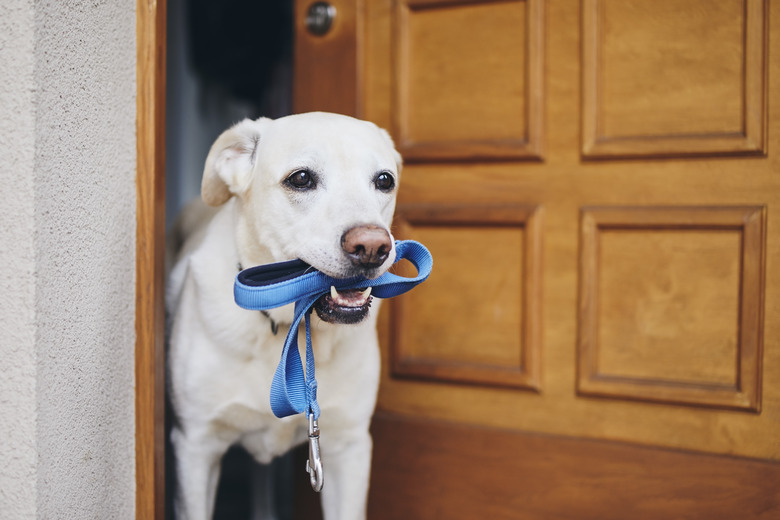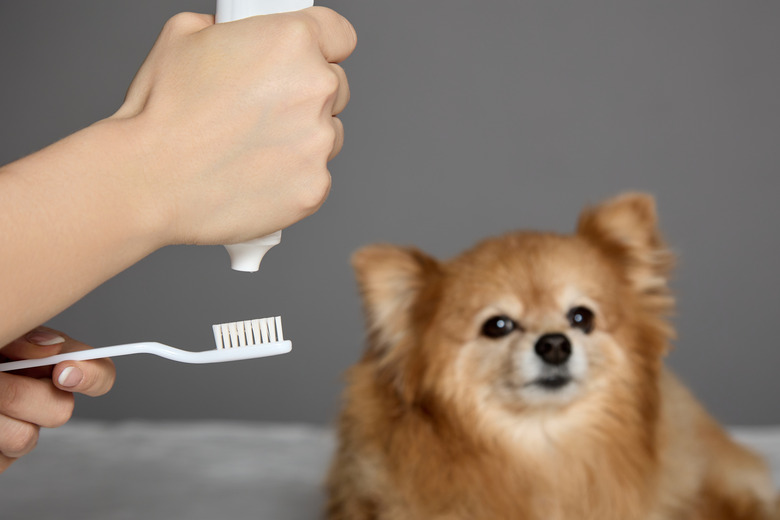Tooth Loss In Dogs: Signs And Treatment
Dogs can develop dental issues that result in tooth loss. A puppy will lose their baby canine teeth, but injuries and periodontal disease can be causes of loose teeth in adult dogs. Learn some of the signs to look for as well as tips for preventing problems so you can help keep your dog's mouth healthy.
Do dog teeth fall out?
Do dog teeth fall out?
After the deciduous teeth are replaced by permanent teeth during puppyhood, it is not considered normal for adult dogs to lose teeth. If you notice that your dog has lost one or more teeth, it's important to work with your veterinarian to figure out the cause, provide the right oral hygiene treatment, and take steps to prevent a dental health problem from progressing.
Causes of tooth loss in dogs
Causes of tooth loss in dogs
Some common causes of tooth loss in dogs include:
- Loss of puppy teeth: It is normal for your pup to lose their teeth, usually around 4 months of age. It can take until they're around 6 months old for all of the baby teeth to be replaced by adult teeth. In the meantime, your puppy might want to chew on everything as they go through the teething phase. Sometimes, pet parents find baby teeth on the floor, but you may not see any teeth at all if your puppy swallows them. (This isn't harmful.) Also, there might be some minor bleeding from the gums. In the event that your puppy is exhibiting symptoms that something is wrong, such as mouth pain or trouble eating, contact your veterinarian to make sure the teeth are growing in properly and the mouth is healthy.
- Loss from injury: An adult dog might lose one or more teeth from an injury caused by an accident or an interaction with another animal. But certain toys, including chew toys, could cause harm to the teeth and gums if they're too hard, so keep that in mind when shopping for those items.
- Loss from dental disease: Periodontal disease (gum disease), which starts off as gingivitis, can cause tooth loss in dogs of all ages. In fact, this condition may affect over two-thirds of canines who are older than 3 years. If it isn't caught early and treated by a veterinarian, it can progress and damage the supporting structures that hold teeth in place, possibly resulting in tooth loss.
Signs of periodontal disease in dogs
Signs of periodontal disease in dogs
If your dog develops the following symptoms, have them examined by a veterinarian:
- Bleeding gums
- Red, swollen, or receding gums
- Bad breath
- Drooling
- Difficulty eating or reluctance to eat
- Teeth that are loose or have fallen out
- Swelling or lumps in their face
- Pawing at their mouth
- Reluctance to have their face touched
My dog lost a tooth: what should I do?
My dog lost a tooth: what should I do?
If you are able to find a lost adult tooth right away, contact your veterinarian for instructions on how to preserve it as you transport your dog to receive prompt dental care. Avoid touching the root or trying to clean the tooth in any way. Place the tooth in milk in case your veterinarian can reinsert it into your pet's gums.
Your veterinarian will be able to examine your dog's mouth carefully to determine the cause of the tooth loss and recommend the appropriate treatment. Your pet might be put under general anesthesia so a more thorough exam can be performed, and dental X-rays might be taken to assess the health of all the teeth.
Also, a dental cleaning may be prescribed to remove plaque and tartar buildup and help improve the health of the teeth and gums. This includes scaling and polishing, and it is done under general anesthesia.
How to prevent dog tooth loss
How to prevent dog tooth loss
There are some actions you can take to improve hour dog's dental health and help prevent tooth loss in your dog:
- Dental checkups and cleanings: Your veterinarian may recommend regular oral examinations and professional dental cleanings to address ailments in their earliest stages and help prevent gum issues and tooth loss.
- Brush at home: You can brush your dog's teeth at home regularly using high-quality oral care products for canines. Never use toothpaste for humans to clean a dog's teeth, as its ingredients can be harmful to your pet. It can be tough to get into the habit of daily brushing with your dog, but regular teeth cleaning helps a lot. It is sometimes easier for dog parents to get a young dog used to brushing than it is for an older dog, but still, with gentle encouragement and rewards, you can probably get your dog use to you cleaning their teeth.
- Canine products designed for oral health: Some pet products are designed to help keep your dog's mouth clean. They can be useful if your dog doesn't tolerate a toothbrush or if you want to take extra steps to protect their oral health. Examples include dental chews and treats, dental rinses and wipes, and certain types of chew toys.
The bottom line
The bottom line
There are several reasons an adult dog might lose teeth. Although unexpected accidents could result in tooth loss, dental disease could also be the culprit. If symptoms like unusual odor, drooling, or reluctance to chew or eat occur, take your dog to the veterinarian (a DVM) or to a veterinary dentist (an FAVD or DAVDC) who specializes in a dog's oral health (some veterinarians are certified in equine dental health, and some are not species-specific in their education). They can provide preventive care and treatments as well as tips on how to keep your dog's mouth clean and healthy. Also, you can take some steps, such as brushing your pet's teeth, to help reduce the risk of problems like periodontitis.

